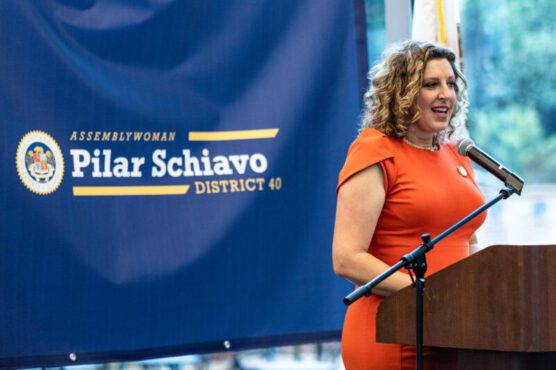California Assemblywoman Pilar Schiavo has announced that California Governor Gavin Newsom signed her package of bills (AB 519 and AB 911) to streamline the development of affordable housing in California.
These bills reduce administrative barriers and allow restrictive covenants to be modified during the purchase of the property to help address the housing affordability crisis.
“Communities across California, including those in our district, are facing a housing crisis. Too many families simply can’t afford housing they can afford, and that is partly due to the roadblocks faced by developers who build affordable housing. That’s why when I came to Sacramento, one of my priorities was focused on ensuring we address this growing crisis. I am proud that these two bills go a long way to reducing red tape and ensuring we can get more affordable housing built as quickly as possible,” said Schiavo. “AB 519 removes red tape by reducing administrative barriers and costs in housing development, and AB 911 will provide more opportunities and choice where families want to live. I am grateful that the Governor signed both of these bills and I look forward to working with him to expedite the process.”
AB 519:
California’s affordable housing and permanent homeless housing finance system is currently comprised of four separate entities which administer a variety of financial resources including tax credits, tax-exempt bonds, soft loans, and grants to housing developers who build and rehabilitate affordable housing for lower-income households and for people experiencing homelessness. Having so many funding sources increases costs – a Terner Center report found that each additional source of funding a developer applies for increases development costs by approximately 2%. Affordable housing projects already operate on razor thin margins, and additional administrative costs create barriers that decrease the number of units which ultimately get built.
AB 519 requires the California Department of Housing and Community Development, The California Housing Finance Agency and the Treasurer’s Office to jointly convene a workgroup composed of affordable and permanent supportive housing developers, local governments, and tribal governments to help create a single consolidated application and coordinated review process amongst the state entities involved in affordable housing finance. The workgroup is required to report recommendations to the Legislature on implementing a single application, and each of the state entities must provide a plan on updating their programs based upon the workgroup’s findings.
AB 911:
For decades, restrictive covenants on land use have prevented people of color or members of a certain religion from accessing housing in specific areas. These covenants shaped the landscape of neighborhoods and cities by creating segregated boundaries. Many of these types of covenants are prohibited and no longer enforceable, however some covenants, like density restrictions, still exist today.
For an affordable housing developer, a density restrictive covenant on a piece of real estate creates another financial barrier to a developer who wants to bring affordable homes to a community quickly. AB 721 (Bloom, 2021) established a process for removing density covenants for 100% affordable housing; however, this could only be done after the purchase, creating hesitancy in some developers. The passage of AB 911 allows a developer to check to make sure a covenant can be removed for their project and to remove the restrictive covenant while the property is in escrow thus streamlining the process and moving the project forward to shovel ready.
Like this:
Like Loading...
Related





 Tweet This
Tweet This Facebook
Facebook Digg This
Digg This Bookmark
Bookmark Stumble
Stumble RSS
RSS


























REAL NAMES ONLY: All posters must use their real individual or business name. This applies equally to Twitter account holders who use a nickname.
0 Comments
You can be the first one to leave a comment.